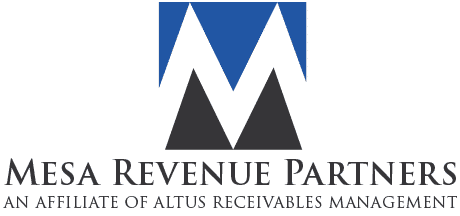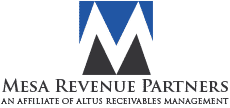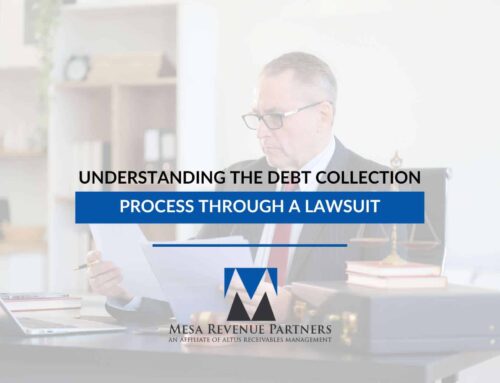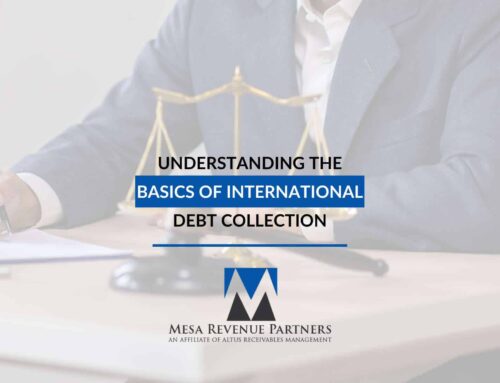An Effective Strategy To Recover Funds & Preserve Professionalism
When a client consistently fails to pay an invoice, it can damage long-standing partnerships, interrupt budgeting plans, and trigger a costly domino effect across departments. At that point, polite follow-ups are no longer enough. A collection demand letter becomes a strategic move to recover funds while maintaining professionalism!
Used correctly, these letters serve as both a financial prompt and a legal safeguard. But to make them effective, businesses must understand their legal boundaries. Knowing how to approach commercial demand letters can make the difference between resolution and escalation!
What You Need To Know About Collection Demand Letters
A collection demand letter is a formal notice sent to a debtor business requesting payment of an overdue invoice or balance. It is often the first documented step in the collections process, used to signal the seriousness of the debt while still offering a chance to resolve it without court involvement. Well-drafted demand letters typically include:
- Clear identification of the creditor and debtor.
- Amount owed (including any late fees or interest).
- Original invoice reference and due date.
- A specific payment deadline.
- Consequences of failing to pay (such as escalation to litigation).
In many cases, companies turn to a business debt collection agency to draft and send these letters on their behalf. Doing so adds weight to the message and ensures compliance with legal standards.
What Are The Legal Requirements & Standards For Demand Letters?
While demand letters are common in business collections, they must meet certain legal standards to be effective and compliant. The rules governing these communications ensure that debtors are treated fairly and given clear information about their obligations.
Key Legal Standards Under The FDCPA
The Fair Debt Collection Practices Act (FDCPA) primarily applies to consumer debts but sets important precedents for how collectors must communicate. Although many commercial debts fall outside its scope, applying similar principles benefits both creditors and debtors by fostering transparency and professionalism. Among the key standards are:
- Clear identification of the debt amount and creditor.
- A statement of the right to dispute the debt.
- Specific instructions on how to respond or pay.
- Avoiding deceptive or harassing communication.
What Is The Fair Debt Collection Practices Act (FDCPA)?
The FDCPA is a federal law enacted to protect consumers from abusive and unfair debt collection practices. Though it mainly regulates personal debts, its guidelines influence many commercial collection protocols as well.
Key Consumer Protections Under The FDCPA
Under this law, a collector must:
- Clearly identify themselves and the purpose of the communication.
- Provide a validation notice that outlines the debt.
- Offer a way to dispute the debt within 30 days.
Although these rules primarily apply to personal debts, businesses working with third-party collectors or a commercial collections agency should ensure those agents adhere to FDCPA standards when applicable.
How The FDCPA Regulates Communication
Collectors must be mindful of when and how they contact debtors. For example, calling outside of permitted hours or using threatening and abusive language is prohibited. Misrepresenting the amount owed or exaggerating the consequences of non-payment also violates regulations.
Even in B2B debts, adhering to these communication standards not only helps maintain professionalism but also reduces legal risks for all parties involved.
How To Read & Understand a Collection Demand Letter
Not all demand letters carry the same weight. Some are carefully crafted by experienced attorneys, while others come from B2B commercial collections firms using standard templates. Recognizing the letter’s seriousness involves checking the details it provides about the debt and the sender’s intent.
Information About The Debt
A legitimate demand letter should clearly identify the original creditor, specify the total amount owed including any accrued interest or fees, and reference related invoice numbers or contract terms.
For example, if your company received a letter from a supplier demanding payment for Invoice #4532 with a stated balance of $12,500 plus a late fee, compare this to your accounting records to confirm whether this invoice is valid and the amount matches.
Ignoring such verification can lead to paying debts you don’t owe or falling victim to fraudulent claims. Always verify the accuracy before proceeding.
Payment Instructions & Options
Typically, the letter will include a deadline for payment and instructions on how to remit funds. It should also provide contact information for addressing questions or negotiating payment terms. For instance, a demand letter might state that payment must be received within 15 days by wire transfer or check to a specified account.
Some letters might propose alternatives such as structured payment plans or settlements, offering flexibility depending on your financial situation.
For example, a letter could offer a 30% discount if the debt is paid in full within 10 days, or allow monthly installments over three months. These options can be crucial for businesses managing tight cash flow.
Knowing & Exercising Your Debt Collection Rights
Businesses have the right to request written verification of any debt claimed in a demand letter. If you find discrepancies, you can dispute the amount or origin of the debt, ideally in writing to create an official record.
For instance, if you believe the amount owed is incorrect due to returned goods or an overcharge, you should formally notify the collector explaining the issue and requesting proof. Additionally, negotiating payment terms is often possible, which can help manage cash flow while resolving outstanding obligations.
Suppose your business cannot pay the full amount immediately; you might propose a payment schedule that aligns with your revenue cycles. Clear communication can prevent involving a corporate collections agency!
What Are The Consequences Of Non-Response Or Non-Payment?
Ignoring a demand letter can escalate the situation quickly. Non-payment or failure to respond may lead to account referral to a business debt collection agency or the start of commercial collections litigation. This step often involves higher costs, damaged credit reputation, and strained business relationships.
What Are Some Of Your Legal Rights & Protections For Debt Collections?
Understanding your legal rights in debt collection scenarios empowers your business to respond effectively and protect itself.
Key Rights Under The FDCPA
These include the right to:
- Receive clear information about the debt.
- Dispute errors or inaccuracies promptly.
- Be free from harassment or false threats.
The Impact Of Your Rights On Collection Practices
When businesses assert their rights, debt collectors are legally required to comply with guidelines that ensure fair treatment. This can lead to more reasonable negotiations and less adversarial interactions.
3 Steps To Take If Your Debt Collection Rights Are Violated
If you suspect your rights have been breached during debt collection, acting quickly is vital to protect your business and strengthen your legal position. Consider these three key steps:
- Document all communication with the collector: Record every interaction—emails, letters, phone calls, dates, times, and names of representatives. This evidence is crucial if you need to prove misconduct later.
- Report violations to regulatory authorities: Agencies like the Consumer Financial Protection Bureau (CFPB) investigate and penalize unfair collection practices. Filing a complaint helps hold collectors accountable and safeguards other businesses.
- Consult with legal counsel experienced in business collections litigation attorneys: A specialized attorney offers advice tailored to your case, helps build defenses, negotiates on your behalf, and represents you in court if needed.
What Happens If You Ignore a Collection Demand Letter?
Failure to address a demand letter can have significant repercussions. It typically triggers escalation to professional agencies specializing in commercial debt collection or even court actions. Ignoring communication may result in judgments against your company, wage garnishments, or liens on business assets.
Timely response and proactive negotiation often prevent these outcomes, preserving your company’s financial health and reputation.
Seek Expert Help From a Debt Collection Defense Lawyer
Facing a complex demand letter or potential litigation? A lawyer specialized in commercial debt collection company litigation can clarify your rights, negotiate on your behalf, and help resolve disputes efficiently.
For professional, strategic support that protects your business while pursuing recovery, reach out to Mesa Revenue Partners. We tailor our approach to meet your goals. Contact us today!








